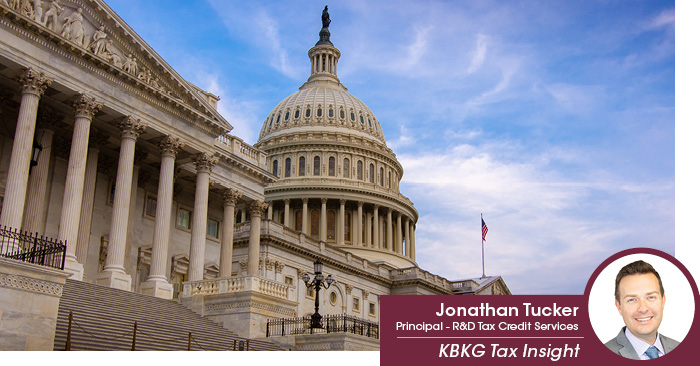By Jonathan Tucker | Principal, Research & Development Tax Credits
There are developments within the Republican Party, as 21 House Republicans have urged President Trump and House Speaker Mike Johnson (R-Louisiana) not to repeal specific green tax incentives established under the Inflation Reduction Act (IRA) of 2022, enacted during President Biden’s administration. These lawmakers emphasize that maintaining these incentives aligns with the nation’s energy goals and supports ongoing investments in their respective districts.
KBKG Insight:
It is estimated that over 70% of the benefits from these IRA incentives benefit districts represented by Republicans. While policy should be the focus of decisions, politics definitely has a significant sway. This topic will be an issue in the coming possible tax reform debate.
The IRA created, extended, and enhanced a series of tax incentives aimed at promoting clean energy initiatives, including wind and solar projects, electric vehicles, and energy-efficient technologies. This included enhanced benefits to the extremely popular 179D Tax Deduction, and these incentives have created substantial private-sector investments, particularly in districts represented by Republican lawmakers.
Opposing GOP’s Position
Congressman Andrew Garbarino (R-New York) expressed concerns that repealing these tax incentives could disrupt or stop existing projects and lead to increased consumer costs. In a letter addressed to House Ways and Means Committee Chair Jason Smith (R-Missouri), the group of 21 House Republicans explained that changing the current tax law could jeopardize existing clean energy projects and raise consumer prices.
The lawmakers made a point to state that these clean energy incentives align with President Trump’s “America First” agenda, promoting energy independence and economic growth. They argue that repealing these incentives could hinder progress toward achieving U.S. energy dominance, a key objective of the Trump administration.
This is one dynamic of the Republican Party that could cause a challenge to Republican efforts to offset proposed tax cuts by reducing federal spending, including potential cuts to programs like Medicaid. There are reports that the House Ways and Means Committee is engaged in closed-door meetings to begin working on the bill, with an aggressive target to finalize it in less than 10 weeks (originally, Speaker Johson said 5 – 6 weeks). The Senate still needs to vote on the House Budget Resolution to officially open the reconciliation process.
Conclusion
This is just one of the varying factions within the Republican Party in balancing fiscal conservatives, with the benefits green energy tax incentives have brought to their constituencies, the national debt, and cuts to certain social benefits. So far, the House has balanced its slim majority to take these beginning steps to achieve their priorities. As the budget negotiations progress, these 21 Republicans may have influence in trying to preserve these clean energy incentives established under the previous administration.
As potential tax reform continues to be uncertain, KBKG and its industry experts have remained at the forefront of legislative issues pertaining to green energy incentives, including the 179D Tax Deduction. To learn more about how to qualify for 179D by designing energy-efficient, tax-exempt buildings, architects, engineers, and other designers are encouraged to contact KBKG below.
See if You Qualify Today
About the Author
Jonathan Tucker | Principal – Research & Development Tax Credit
Jonathan Tucker is based in Atlanta, GA, and has over 20 years of experience providing federal business tax advisory services, primarily in R&D tax credits, to clients in various industries including technology, manufacturing, transportation, healthcare, retail and consumer products, hospitality, media and entertainment, financial, and other professional services industries… Read More



